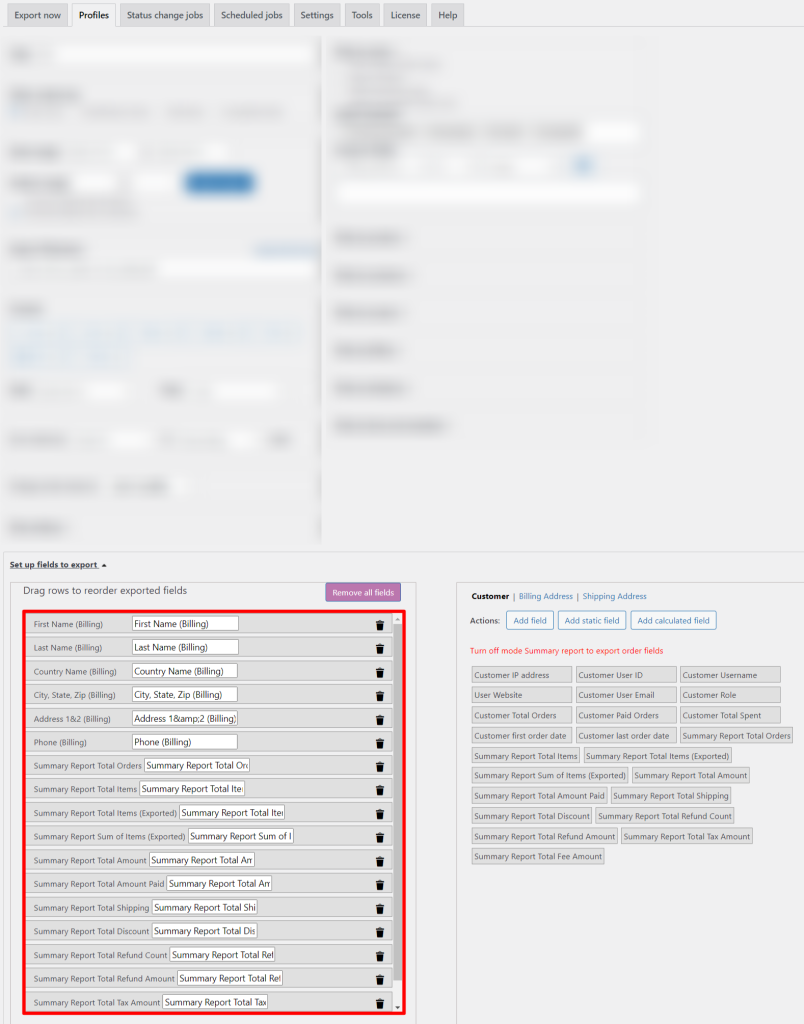Common Examples of the exported orders
Let’s make the first export with the Advanced Order Export by WooCommerce!
Some parameters in the plugin are set by default. Orders are filtered by the date they were created, the export file name is “orders-%y-%m-%d-%h-%i-%s”, orders are sorted by id in descending order, and all fields are in the export fields.
Let’s configure the most requested settings and create three different export files: a regular file with multiple orders, summary report by products, and summary report by customers.
Regular file with multiple orders.
Let’s set the order date range. For this you must click on “Date range” and select the day, month and year from the pop-up calendar.
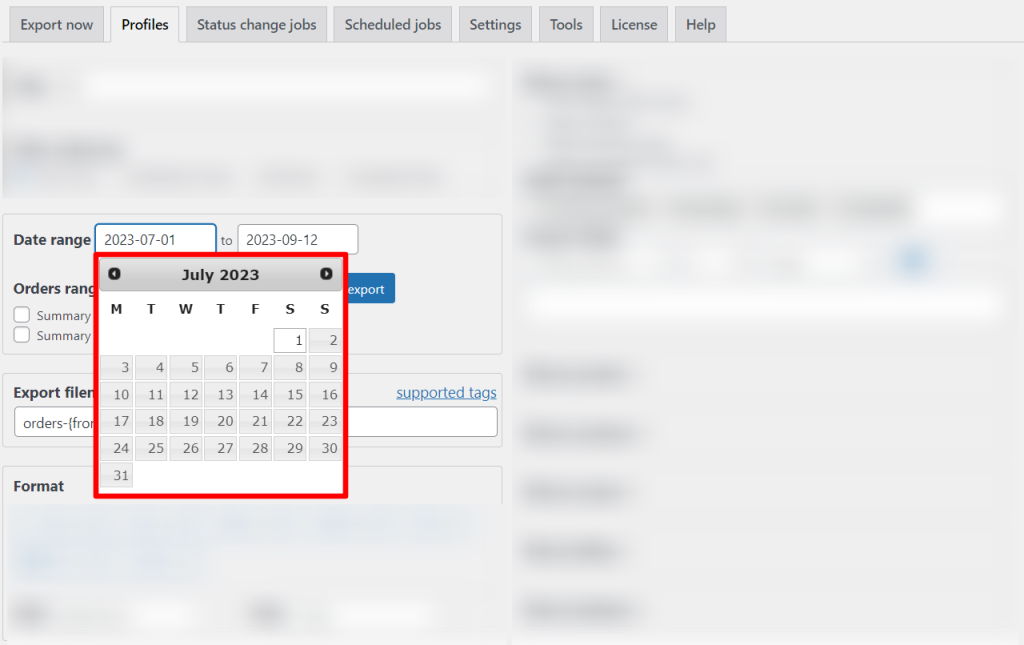
Then change “Export filename“. To make it clear, orders for which period will be exported, let’s write the following code:
“orders-{from_date}-to-{to_date}”
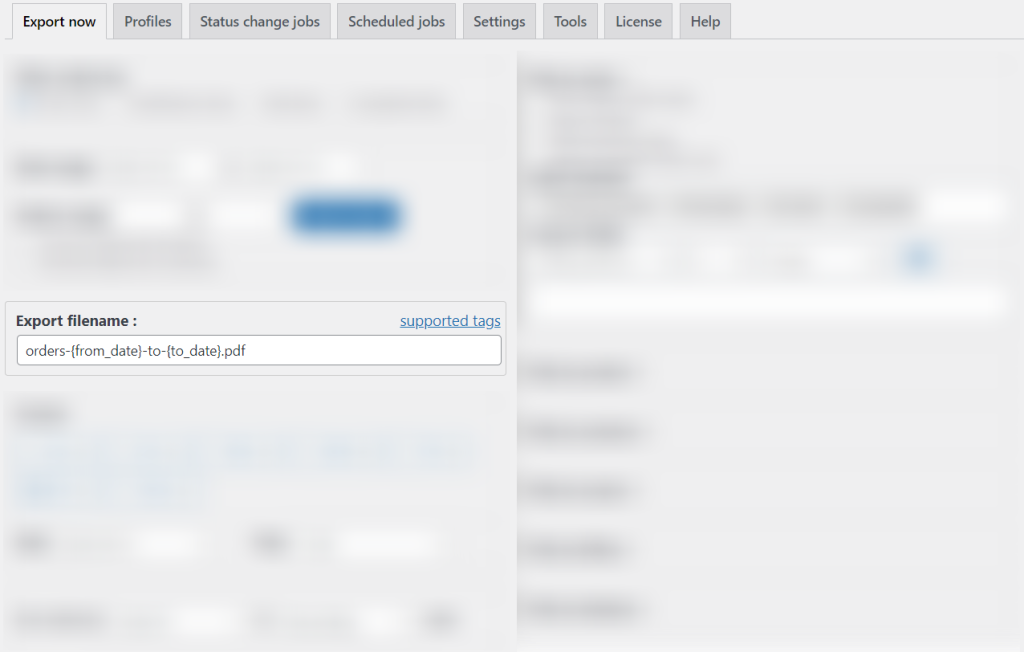
Select format of export file. In our example, it will be a PDF. Set up settings for it. Click again on PDF and choose:
Page number – right align
Page header text – First example
Fit table to page width – Yes
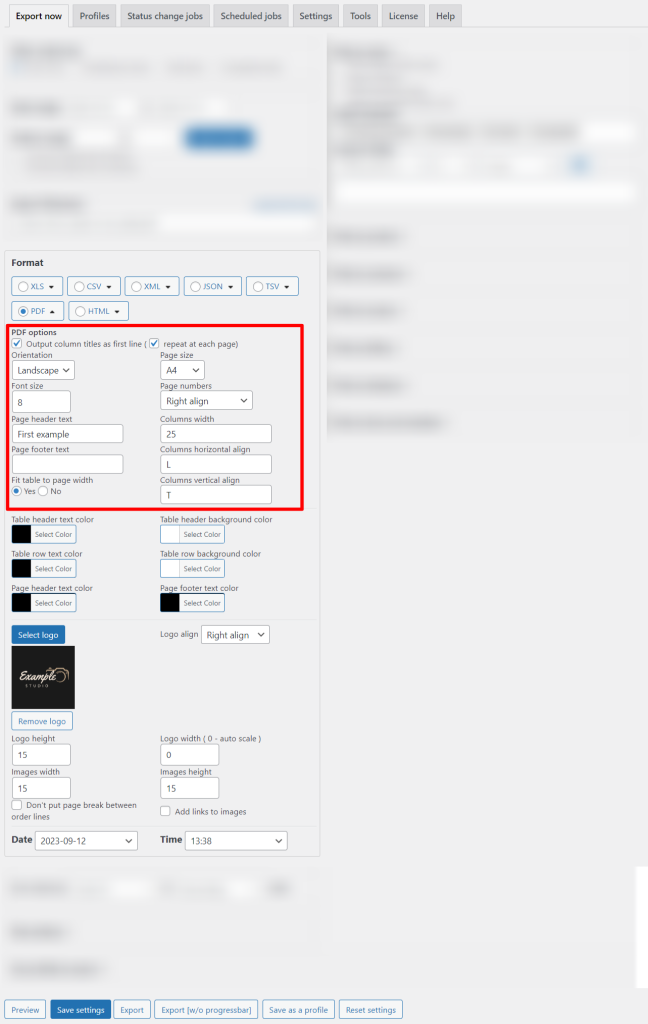
You can also change the colors in your file and add your logo.
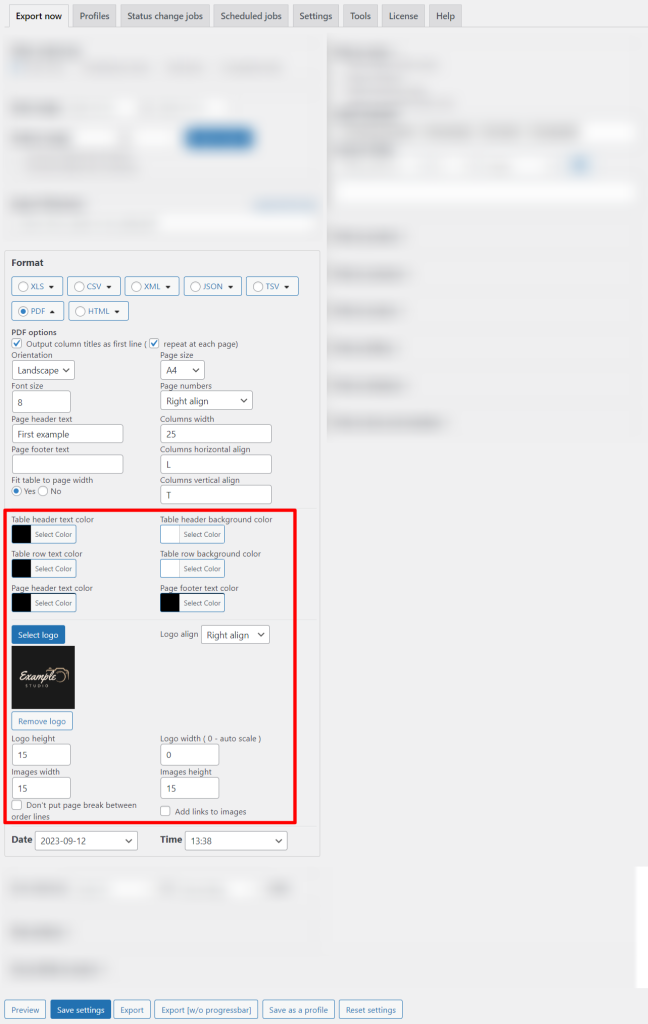
Now set up fields to export.
Click on “Remove all fields” and then add other fields by method drag-and-drop.
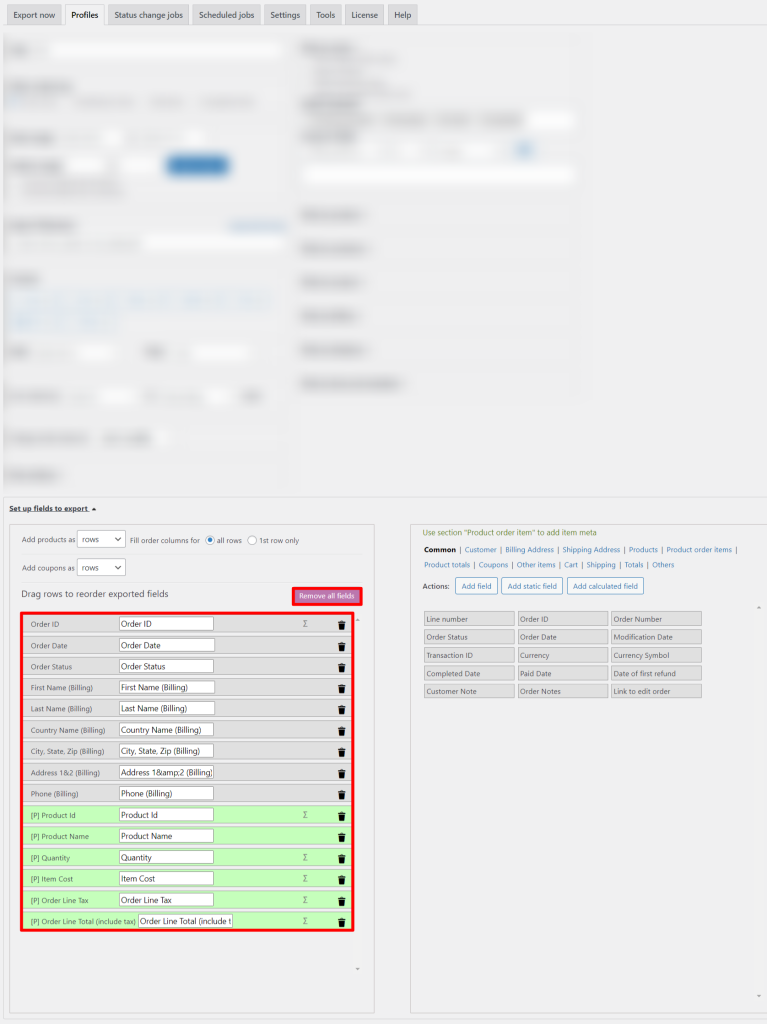
Summary report by products.
For this type of export, you need to choose “Summary report by products”.
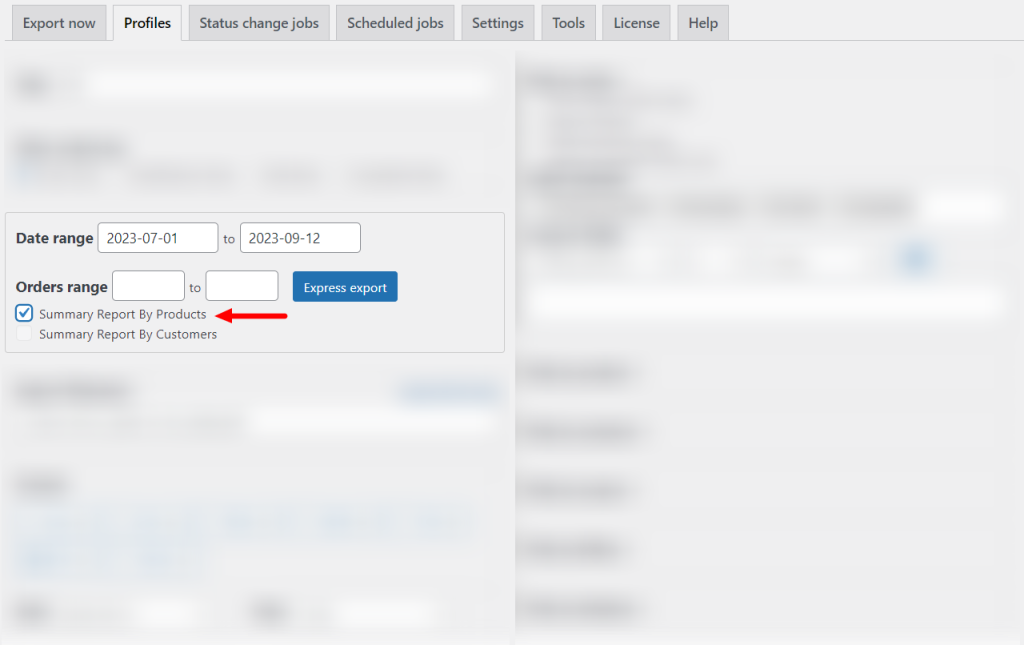
Note: All other settings will be saved, except for the fields for export. They will be changed to those appropriate for this type of report.
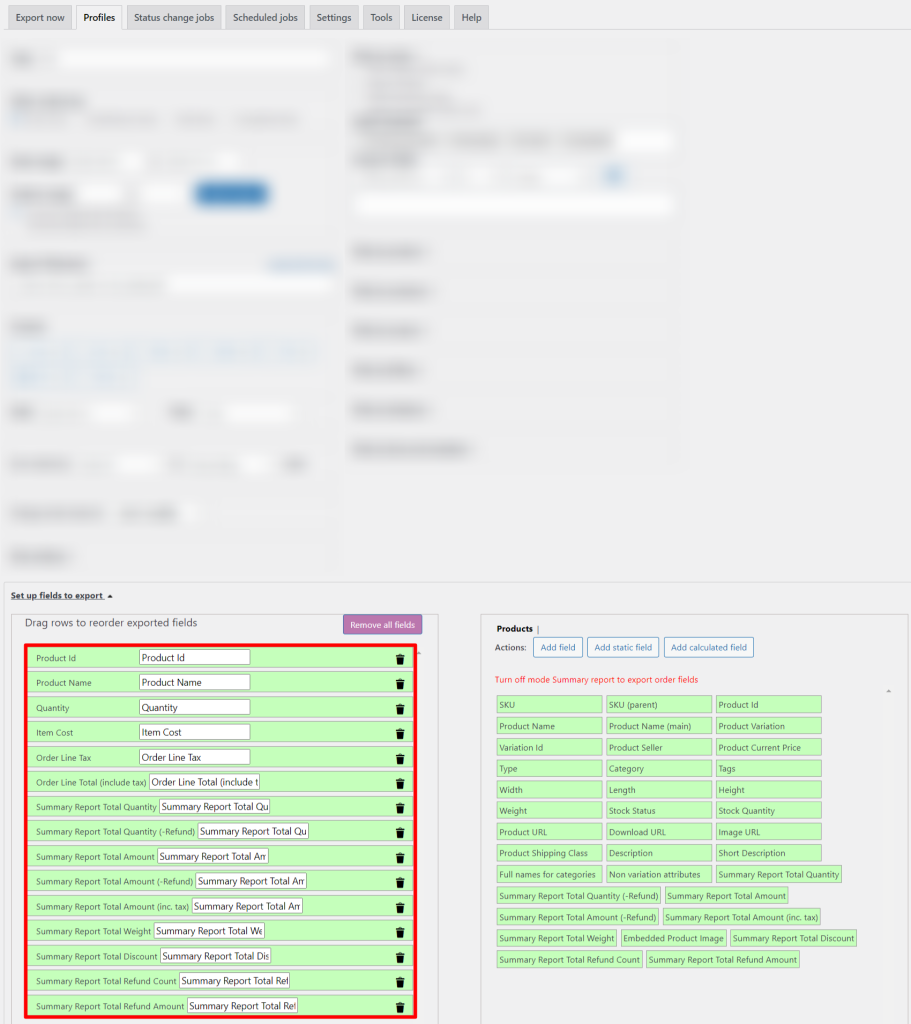
Summary report by customers.
As in the previous case, you need to tick the “Summary report by customers”.
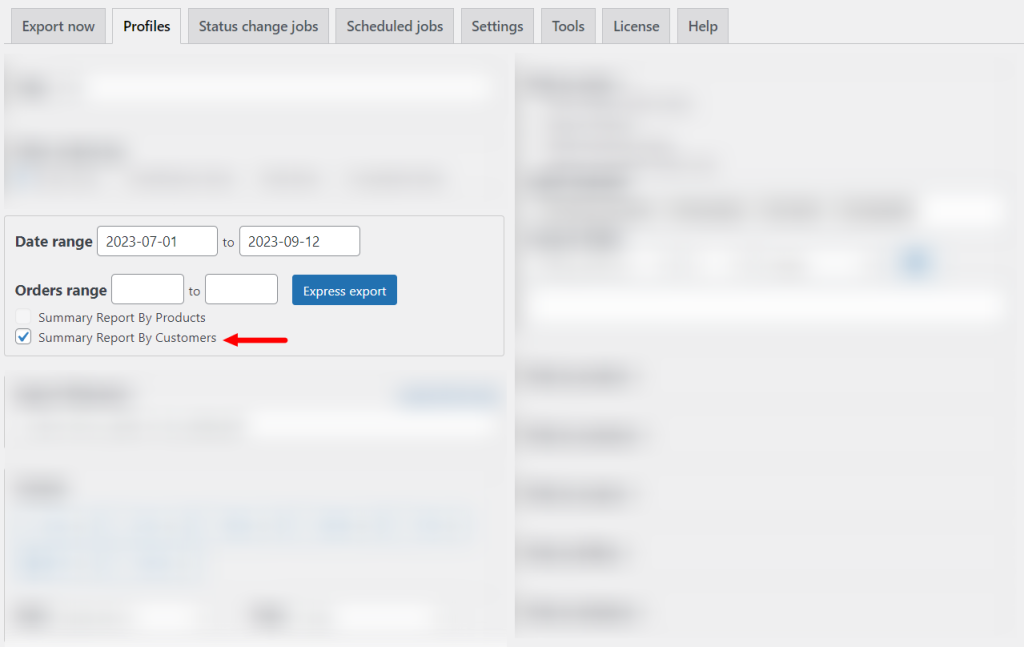
Also fields for export will be different.
